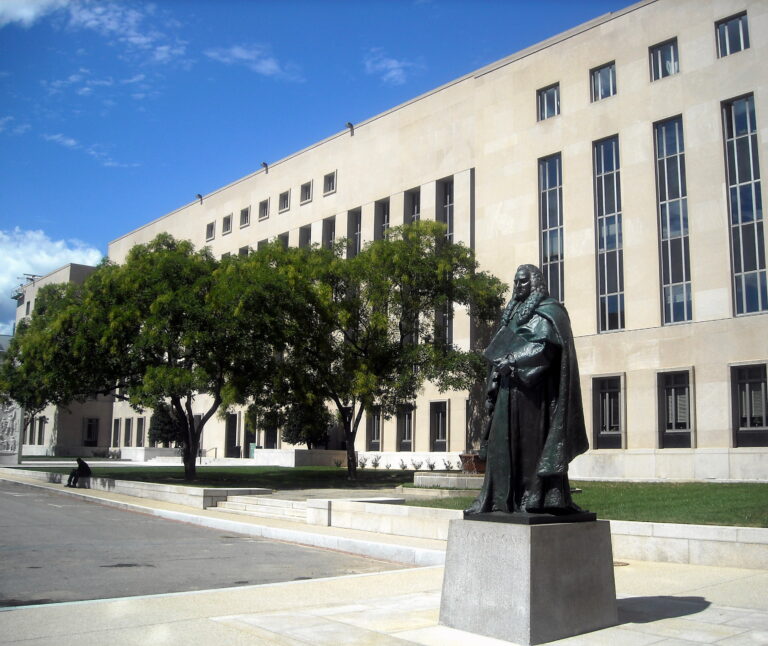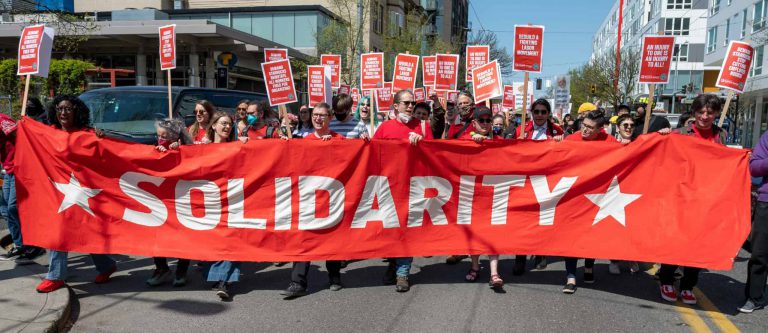Today, the NLRB issued a notice of proposed rulemaking to “amend its rules and regulations governing the filing and processing of petitions relating to the representation of employees for purposes of collective bargaining with their employer.”
The proposed rulemaking was announced yesterday. The proposal is “aimed at modernizing processes, enhancing transparency and eliminating unnecessary litigation and delay.” The Board further explained:
The reforms the Board will propose would:
-
allow for electronic filing and transmission of election petitions and other documents;
-
ensure that employees, employers and unions receive and exchange timely information they need to understand and participate in the representation case process;
-
streamline pre- and post-election procedures to facilitate agreement and eliminate unnecessary litigation;
-
include telephone numbers and email addresses in voter lists to enable parties to the election to be able to communicate with voters using modern technology; and
-
consolidate all election-related appeals to the Board into a single post-election appeals process.
The NLRB has posted two fact sheets describing the proposed changes, one of which contains a side-by-side comparison of current rules and the new proposed rules (the other, more general, fact sheet can be found here).
The proposed rules could have a significant impact on the speed of NLRB elections. According to the Wall Street Journal, “[s]ome legal experts have said the proposal would shorten the time between the filing of a vote petition with the NLRB and the actual election to 25 days or fewer. That is nearly two weeks less than last year’s medial of 38 days. In contested cases, the median was 59 days.” Data on NLRB petitions and elections can be found here.
In substance, the proposed reforms are the same as those previously proposed by the Board in June 2011, only some of which were adopted as final rules in December 2011. The 2011 final rule was struck down on procedural grounds by the U.S. District Court for the District of Columbia in 2012. Judge James E. Boasberg found that the rule was adopted in the absence of a “statutorily required quorum.” “Two members of the Board participated in the decision to adopt the rule,” but generally the NLRA, as amended by the Taft-Hartley Act, requires a quorum of “three members in order to act.” Judge Boasberg’s “expressed no opinion” on the other claims raised in the case; he noted, “it may well be that, had a quorum participated in its promulgation, the final rule would have been found perfectly lawful.” According to the NLRB’s announcement yesterday, the “Board’s appeal of that ruling was dismissed, pursuant to a joint stipulation” in 2013.
In the latest proposed rulemaking, all five members of the Board participated in the issuance of the proposed rule. Three Board members approved the proposed rulemaking, while two dissented.
The proposed changes to election procedures are open to public comment through April 7, 2014. The Board has also indicated that it “will review all of the comments filed in response to the original [2011] proposals;” replies to the initial comments are due by April 14, 2014. The Board will also hold a public hearing the week of April 7, 2014.
The proposed rulemaking drew swift reaction along familiar partisan lines from politicians, labor organizations, and business groups. Sen. Tom Harkin (D-IA), Chairman of the Senate Health, Education, Labor and Pensions (HELP) Committee, praised the NLRB for its “efforts to ensure that workers, unions, and employers have access to a fair, transparent, and efficient election process.” Sen. Lamar Alexander (R-TN), the senior Republican on the Senate labor committee, Rep. John Kline (R-MN), Chairman of the House Education and the Workforce Committee, and Rep. Phil Roe (R-TN), Chairman of the Subcommittee on Health, Employment, Labor, and Pensions, decried the “ambush election” rule. Representatives Kline and Roe said the proposal will “stifle employer free speech and cripple worker free choice,” and announced an oversight hearing to take place on March 5, 2014.
Comments from labor and business groups can be found in the extensive coverage of the NLRB’s announcement, including in the Wall Street Journal, New York Times, Washington Post, Los Angeles Times, Reuters, Chicago Tribune (Reuters), Forbes, Bloomberg / Businessweek, Huffington Post, Salon, The Hill, and others.






Daily News & Commentary
Start your day with our roundup of the latest labor developments. See all
April 24
NLRB seeks to compel Amazon to collectively bargain with San Francisco warehouse workers, DoorDash delivery workers and members of Los Deliveristas Unidos rally for pay transparency, and NLRB takes step to drop lawsuit against SpaceX over the firing of employees who criticized Elon Musk.
April 22
DOGE staffers eye NLRB for potential reorganization; attacks on federal workforce impact Trump-supporting areas; Utah governor acknowledges backlash to public-sector union ban
April 21
Bryan Johnson’s ULP saga before the NLRB continues; top law firms opt to appease the EEOC in its anti-DEI demands.
April 20
In today’s news and commentary, the Supreme Court rules for Cornell employees in an ERISA suit, the Sixth Circuit addresses whether the EFAA applies to a sexual harassment claim, and DOGE gains access to sensitive labor data on immigrants. On Thursday, the Supreme Court made it easier for employees to bring ERISA suits when their […]
April 18
Two major New York City unions endorse Cuomo for mayor; Committee on Education and the Workforce requests an investigation into a major healthcare union’s spending; Unions launch a national pro bono legal network for federal workers.
April 17
Utahns sign a petition supporting referendum to repeal law prohibiting public sector collective bargaining; the US District Court for the District of Columbia declines to dismiss claims filed by the AFL-CIO against several government agencies; and the DOGE faces reports that staffers of the agency accessed the NLRB’s sensitive case files.